
Abdul-Azeez Olajide Adediran, widely known as Jandor, is a Nigerian politician, journalist, entrepreneur, and technocrat. He serves as the chairman…

Abdul-Azeez Olajide Adediran, widely known as Jandor, is a Nigerian politician, journalist, entrepreneur, and technocrat. He serves as the chairman…

We’ve all been guilty of holding onto things well past their prime, whether we’re trying to convince ourselves that those ragged sneakers can last another year or that last week’s takeout is probably still fine to eat. However, when it comes to your health and safety, you might want to expedite the schedule with which you’re replacing some of your household essentials. With the help of cleaning experts, we’ve rounded up the supplies you should be replacing more frequently—and how to know when it’s time to give them the boot.
RELATED: 13 Worst Items to Store in Your Pantry.

It may seem like your refrigerator's water filter is getting rinsed with every use, but it can actually be a major breeding ground for bacteria if you’re not changing it frequently enough.
"The filter on your refrigerator doesn’t just affect the water you drink; it also affects the quality of the ice it’s making," explains Jennifer Rodriguez, chief hygiene officer at Pro Housekeepers, who recommends replacing refrigerator water filters every six to eight months.
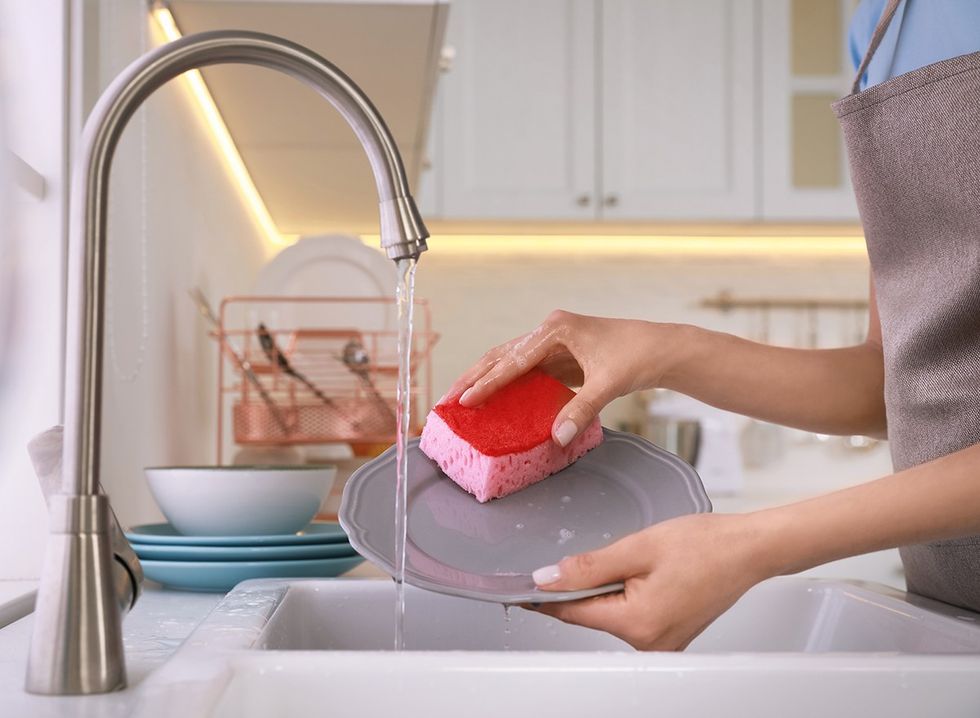
If you want to prevent the spread of potentially dangerous germs, you should replace your kitchen sponge frequently.
"Sponges are prone to bacteria growth, between their porous structure and frequent contact with contaminants," says Robin Murphy, cleaning expert and founder of residential cleaning service ChirpChirp.
And if you’re considering simply cleaning them instead of replacing them, think again: A 2017 study published in Scientific Reports reveals that microwaving sponges didn’t significantly reduce their bacterial load.
Therefore, Murphy recommends replacing your kitchen sponge every week, but never longer than two weeks.
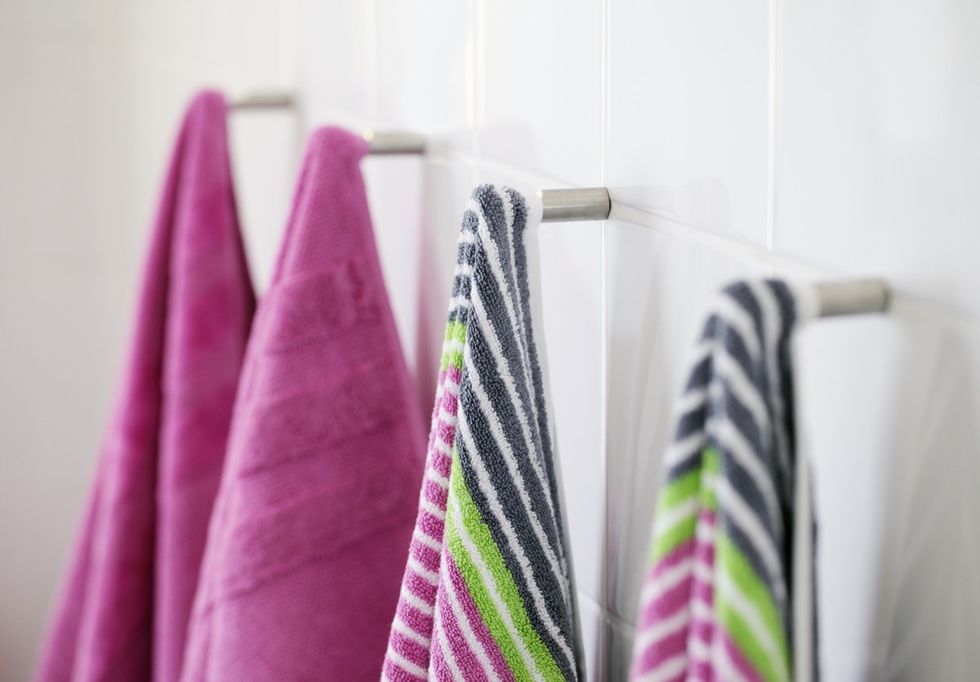
Are you getting your body dry with that towel, or just adding bacteria to it? If you’re not replacing those towels every two or three years, it’s probably the latter.
"Towels harbor E. coli, which are pathogens for humans; they also harbor coliforms, a fecal indicator bacteria, which basically tells you there are feces inside the towel; lastly, they harbor yeast and molds, which could be problems for people with allergies," explains Amy R. Bloomer, founder and owner of Let Your Space Bloom.
Her recommendation? Wash your towels weekly in hot water, open your bathroom door whenever possible to keep the room dry, and rotate towel sets frequently.
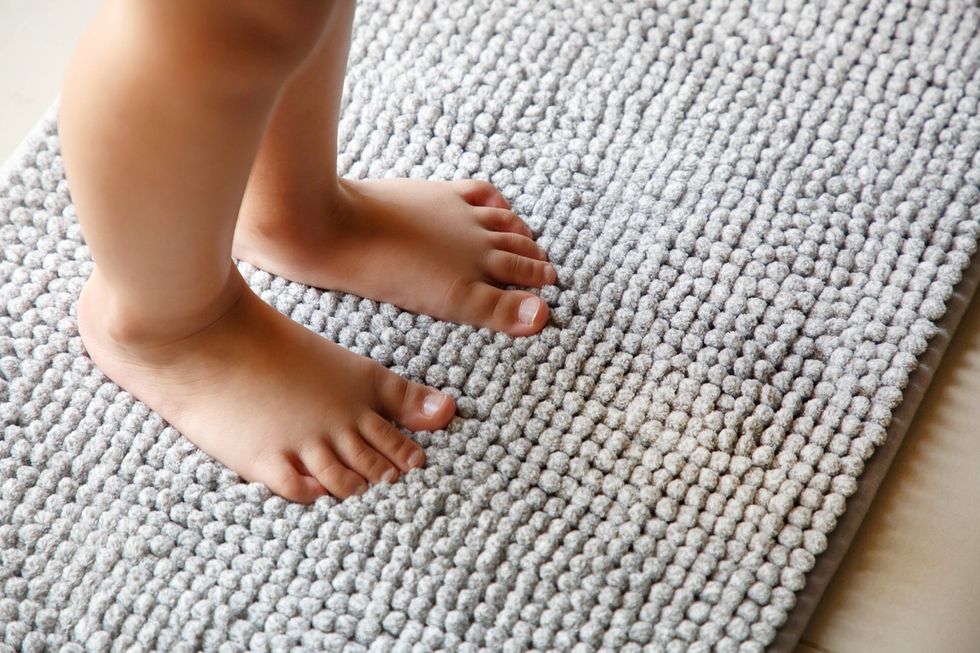
Since they're typically kept in moist environments and are in frequent contact with germs from your body, hanging on to that bath mat for too long could mean you’re creating a breeding ground for mold and mildew that could even lead to athlete's foot.
Justin Carpenter, owner of Modern Maids, says that bath mats should be replaced every two years.
He also recommends washing them regularly between replacements: "This ensures they stay germ free, especially if you have multiple people using the same mat."
RELATED: 6 Alarming Reasons You Should Stop Cleaning With Bleach, Experts Say.

You may believe you invested in a cutting board that can last you forever with proper upkeep, but Murphy suggests replacing them annually.
She explains that knives create grooves in the board, "which become a breeding ground for bacteria." And no amount of scrubbing is going to undo that.
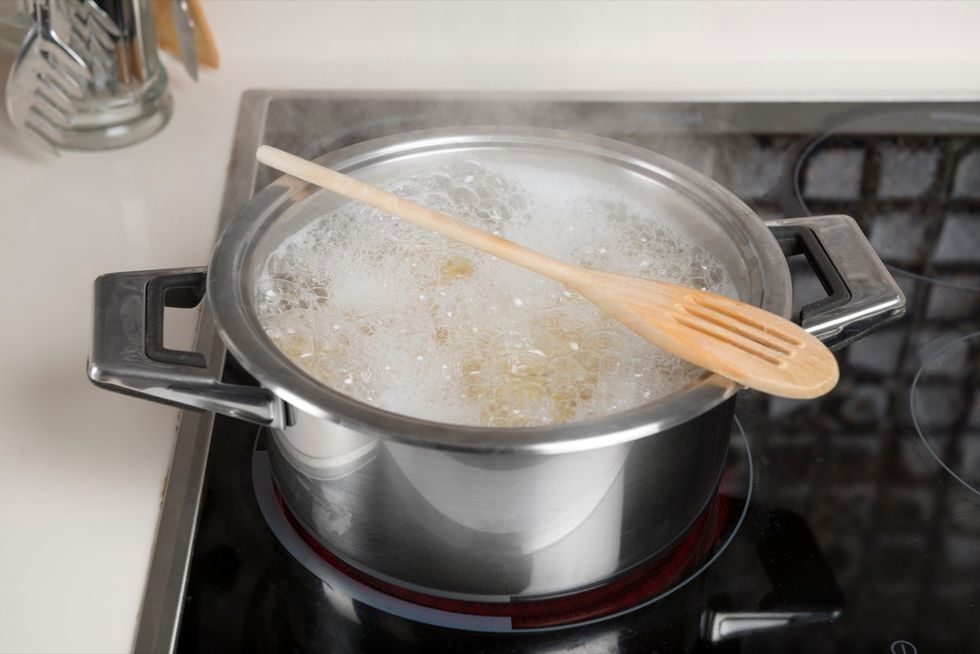
Likewise, wooden spoons are porous and can retain bacteria if they're nicked or cracked. They can also start to retain odors from the foods you're cooking.

Your air conditioner filter is keeping dirt and other debris from entering your home—but if you’re not changing it frequently, it’s simply adding those contaminants to your household air.
"Dirt in the filter shortens the life of your air conditioner because dirt pulls into the inner workings of the unit," says Marla Mock, VP of operations at Aire Serv, a Neighborly Company. She notes that a dirty filter can also cause an increase in your electric bill.
To play things safe, Mock recommends replacing AC filters once every three months.
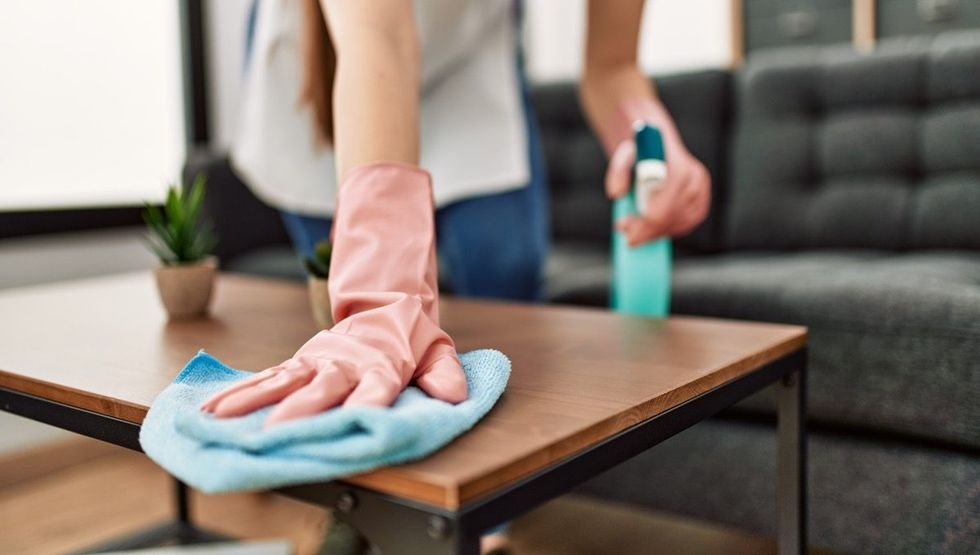
Sure, you may use them to get your house clean, but those rags aren’t exactly germ-free.
Carpenter suggests only using rags once, then throwing them in the laundry machine instead of letting them stay damp under your sink or in a closet. You should also completely replace rags every two years.
Not only will frequent cleaning and replacement help reduce the spread of bacteria, "the new cloths will absorb more solution and allow you to finish your tasks in a reasonable amount of time," explains Carpenter.
RELATED: Disease Experts Share Easy Way to Keep Your Suitcase Bacteria Free.
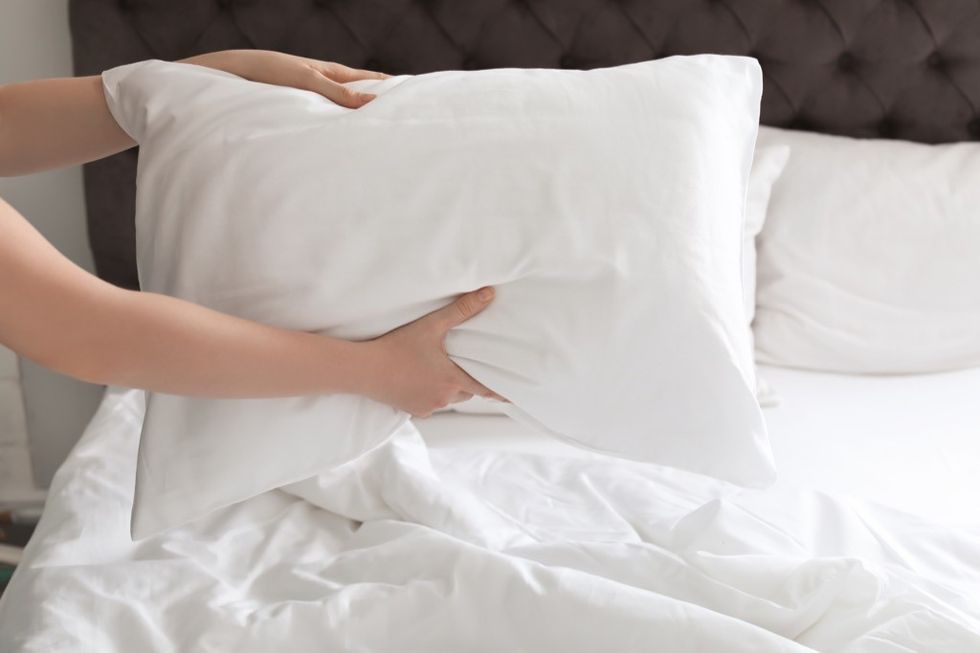
Since pillowcases can harbor dust mites, they should be washed at least once a week and replaced every few years.
As a preventative measure, Amy R. Bloomer, founder and owner of Let Your Space BLOOM, recommends using allergy covers under your pillowcases, which are woven "so even dust mites can’t slip through them."
Bloomer also suggests avoiding going to bed with wet hair, which can make your pillowcase a breeding ground for dust mites and bacteria.
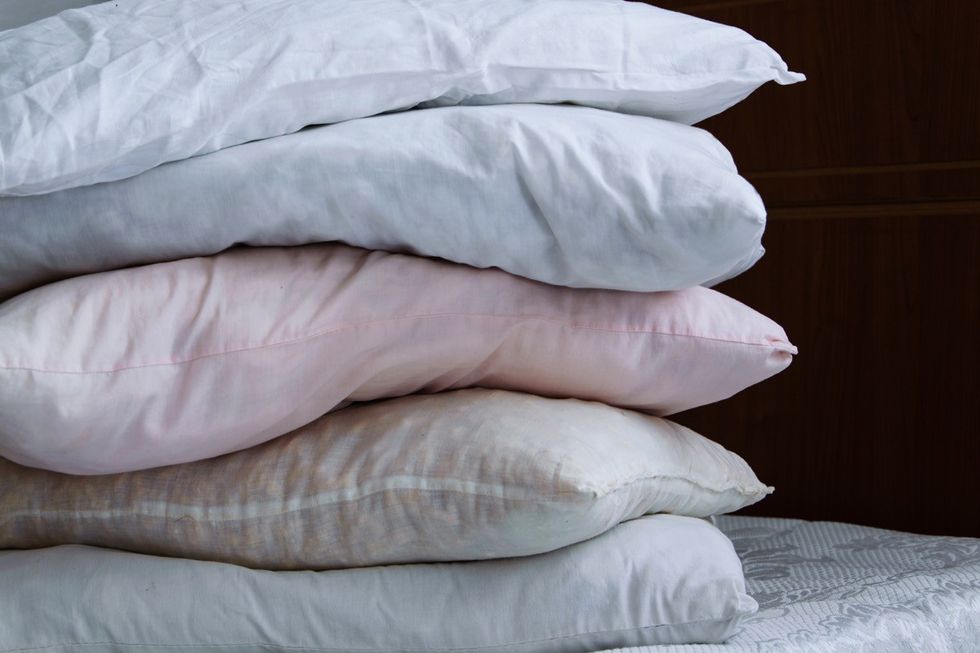
If you’ve been toting around the same pillows since childhood, it’s high time you upgraded to a new set.
"Pillow are great environments for bacteria, dust mites, dead skin cells, and a bunch of other nasty things," says Rodriguez.
However, unlike other items that can be effectively cleaned through laundering alone, Rodriguez explains that even regularly washed pillows should be replaced every two years. In the interim, you can learn how to deep clean your pillows for the healthiest sleeping environment.
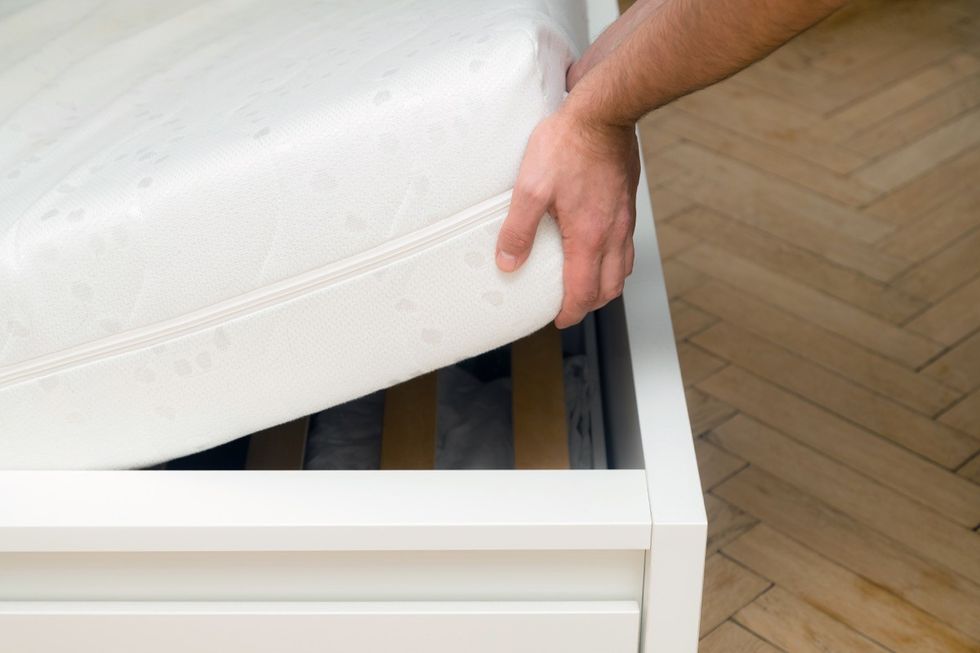
Just because it costs you a pretty penny doesn’t mean that the mattress is a lifelong possession—especially when it's near impossible to clean.
"Mattresses need to be changed every five to seven years," says Donna Atanasova, a cleaning expert with Fantastic Services Australia.
According to a study from Amerisleep, the average seven-year-old mattress has about 16 million colony-forming bacteria on it—versus just three million on a mattress under one-year-old.

Its purpose is to suck dirt and debris up off your floors—so make no mistake, your vacuum cleaner is positively filthy.
"If the filter is not changed regularly, it can leak small particles like dust and dander out with the exhaust air," says Matt Clayton, founder of Pet Hair Patrol.
To keep things cleaner, swap out your filter every three to six months.
RELATED: How Often Do You Wash Your Sheets? Doctors Say They're a "Petri Dish" of Bacteria.
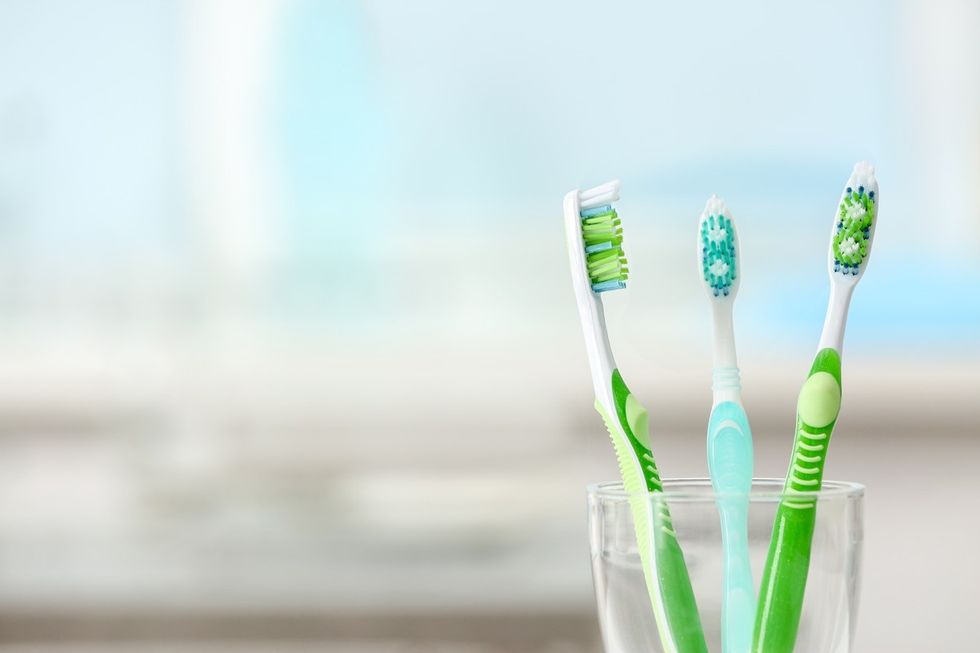
Think your toothbrush has to look ragged before it’s time to get a new one? Think again.
"Most people do not clean their toothbrushes as often as they should, and they harbor germs," explains Tom Klimaszewski, a certified infectious disease prevention expert with the Chicago-based cleaning service Bee Line Support.
Klimaszewski recommends keeping toothbrushes covered or storing them inside a drawer since toilet flushes "can spread microscopic bacteria, including E.coli, up to six feet."
As Best Life previously shared, the Centers for Disease Prevention and Control (CDC) advises replacing your toothbrush every three months.
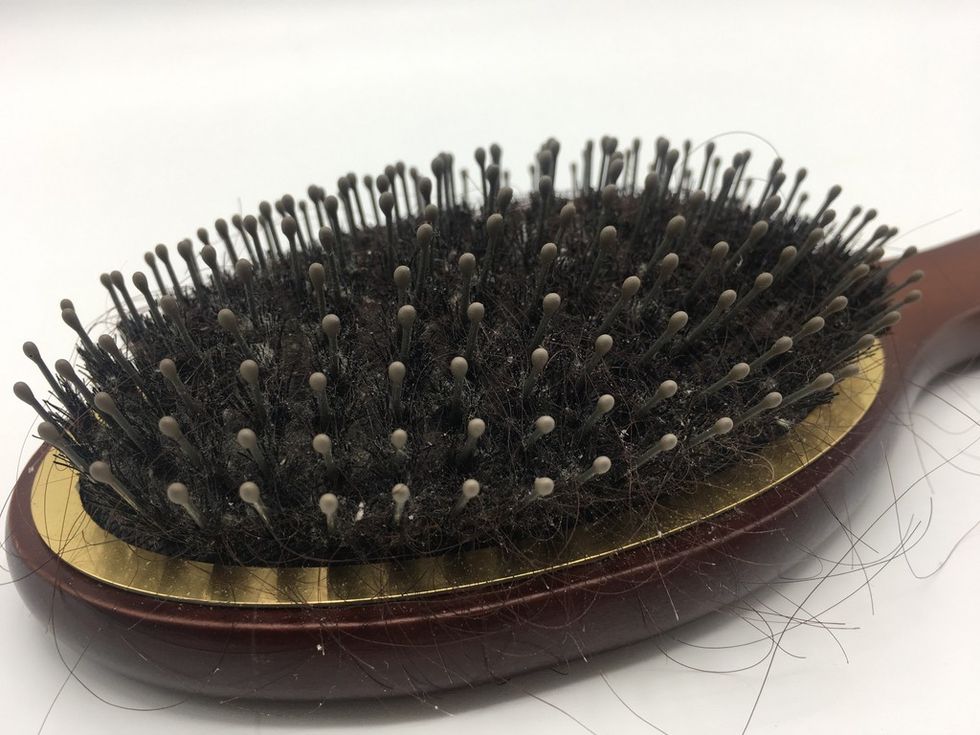
When hairbrushes show signs of wear and tear, they can not only cause hair breakage but also start harboring bacteria and mold.
Anna H. Chacon, MD, a board-certified dermatologist, says plastic or rubber hair brushes should be replaced every 6 to 12 months. Celebrity hairstylist Michael Sparks advises replacing boar-bristle brushes every six months, too. If you have very thick or curly hair, you may need to replace your brush more frequently.
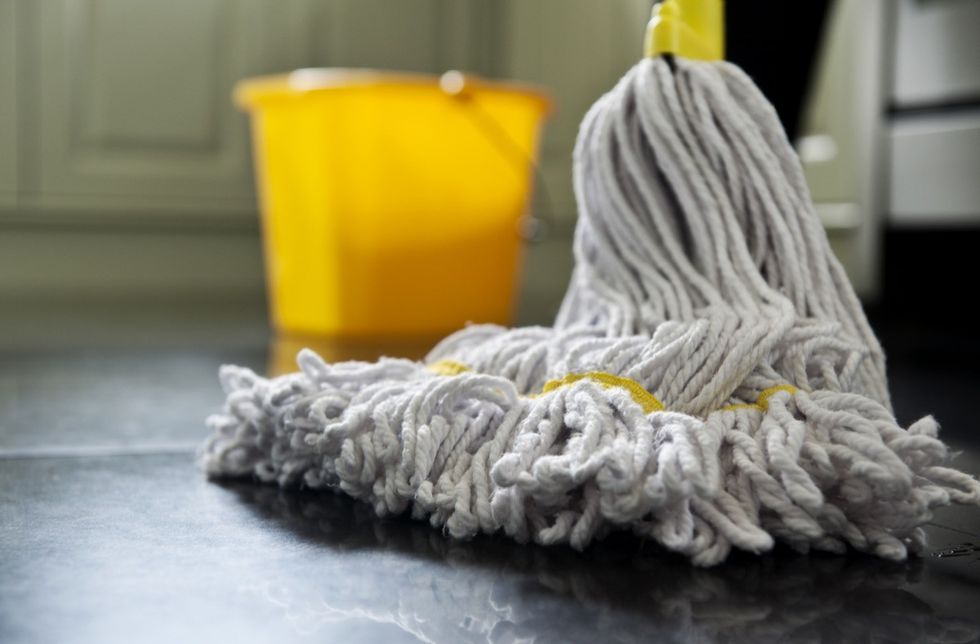
If you’re not replacing your mop cloth or head often, you could be making your home dirtier than if you didn’t mop at all.
"By frequently replacing your mop, you are ensuring that it is doing its job cleaning your space and not becoming a hazard by leaving germs and bacteria behind," explains Carpenter, who recommends replacing mop accessories every other month.
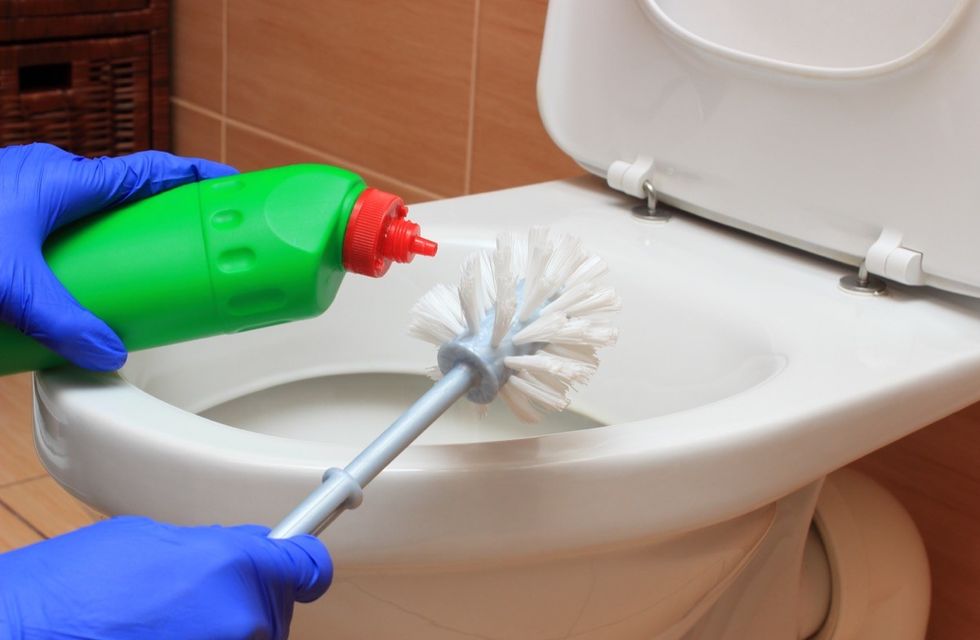
If you’ve been holding onto that toilet brush for a long time, you’re probably overdue for a replacement.
"The toilet brush is used to clean one of the dirtiest places in your home. Therefore it hosts a lot of bacteria and germs," says Carpenter, who recommends replacing yours every six months.
Or, you can purchase a toilet wand that uses disposable cleaning pads such as the popular one from Scrubbing Bubbles.

Patricia Rahman is an American actress And mental health Coach who is best known for her role as the ex-wife…

Uche Nwakuche Eduzor, better known as Sister Maggi, is a Nigerian actress, comedian, and content creator. She is well-known for…
Read More: Uche Eduzor Biography: Movies, Age, Net Worth, Siblings, Parents, Height, Boyfriend